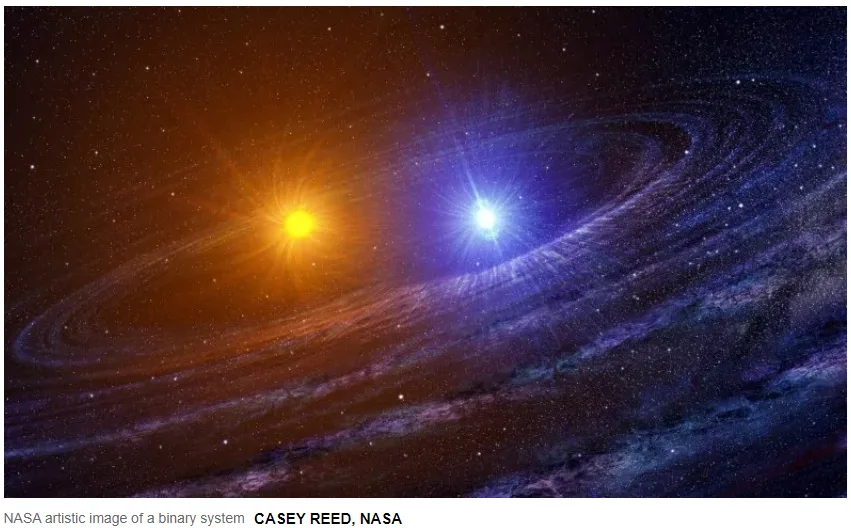15/11/2024 – 7:30pm
The Speaker – Ingrid Pelisoli via Zoom
Ingrid Pelisoli is an Assistant Professor and Royal Society University Research Fellow at the University of Warwick. Originally from Brazil, she could experience the sky with minimal light pollution and fell in love with astronomy from a young age. After obtaining a PhD in Astrophysics in Brazil, she was a Postdoctoral Fellow at the University of Potsdam (Germany) before moving to the University of Warwick. Her main research interests are white dwarf and hot subdwarf stars, particularly in close binary systems. These are often potential supernova Ia progenitors, which are key for understanding the expansion of the Universe, and strong gravitational wave sources that allow multi-messenger studies.
Fantastic binaries and how to find them
Binary stars are systems where two stars orbit one another under their mutual gravitational attraction. They are very common: astronomers estimate that between a third and a half of all stars are in binaries. One prominent example is Sirius, the brightest star in the sky, which is a binary between a main sequence star, like our Sun, and a white dwarf star, a fossil of stellar evolution. These binaries containing a stellar fossil are of particular interest in astronomy: they can reveal the impact of binarity in the life of a star. Not only that, these systems are also potential supernovae progenitors and are sources of gravitational waves. In this talk, she will explain the effects of binarity in stellar evolution and their observational signatures, and show how these signatures have enabled us to discover some fantastic binary systems.

